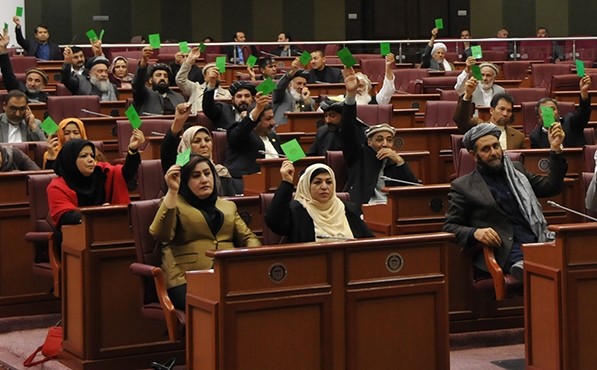
Harassment in the workplace, in schools and on the street is a daily experience for many women and girls in Afghanistan. An October 2016 report, Barriers Faced by Women at Workplace: Analysis and Suggestions by the Afghan Ministry of Women’s Affairs and the U.S. Agency for International Development (USAID), found that women’s participation in government jobs is dismally low, due in large part to harassment. Fifty-four percent of female survey respondents said they do not feel comfortable while interacting with their male counterparts.
Afghanistan’s first Anti-Harassment Law aims to protect women and girls. Approved by Afghanistan’s Lower House of Parliament in November 2016 and then by the Upper House in December, the law defines harassment in Afghan society and the penalties for harassing women and girls.
The new law received an extensive support from USAID’s Assistance to Legislative Bodies of Afghanistan (ALBA) project. ALBA and the commission set out to develop an Anti-Harassment Law that would appeal to a large segment of Afghan society. Following an intense study of similar legislation from other countries (which began with a study tour to Bangladesh), and using inputs from local civil society organizations and several parliamentary commissions, the anti-harassment bill was designed using just 29 Articles – all written to emphasis the day-to-day problems faced by women and girls in Afghanistan.
Commission members designing the bill were cautious not to complicate the document. Legislation that tackles social norms in Afghanistan often ends up sidelined due to a coherent lack of understanding, and political grandstanding. Now the law awaits the President’s approval.
“We are optimistic that the law will be passed by the President,” said ALBA’s Senior Gender Advisor Abida Liwal. “While it’s a great testament to parliament’s ability to design legislation hand-in-hand with a variety of stakeholders, it is also a positive sign that attitudes can change in Afghanistan.”







Comment
Make a general inquiry or suggest an improvement.